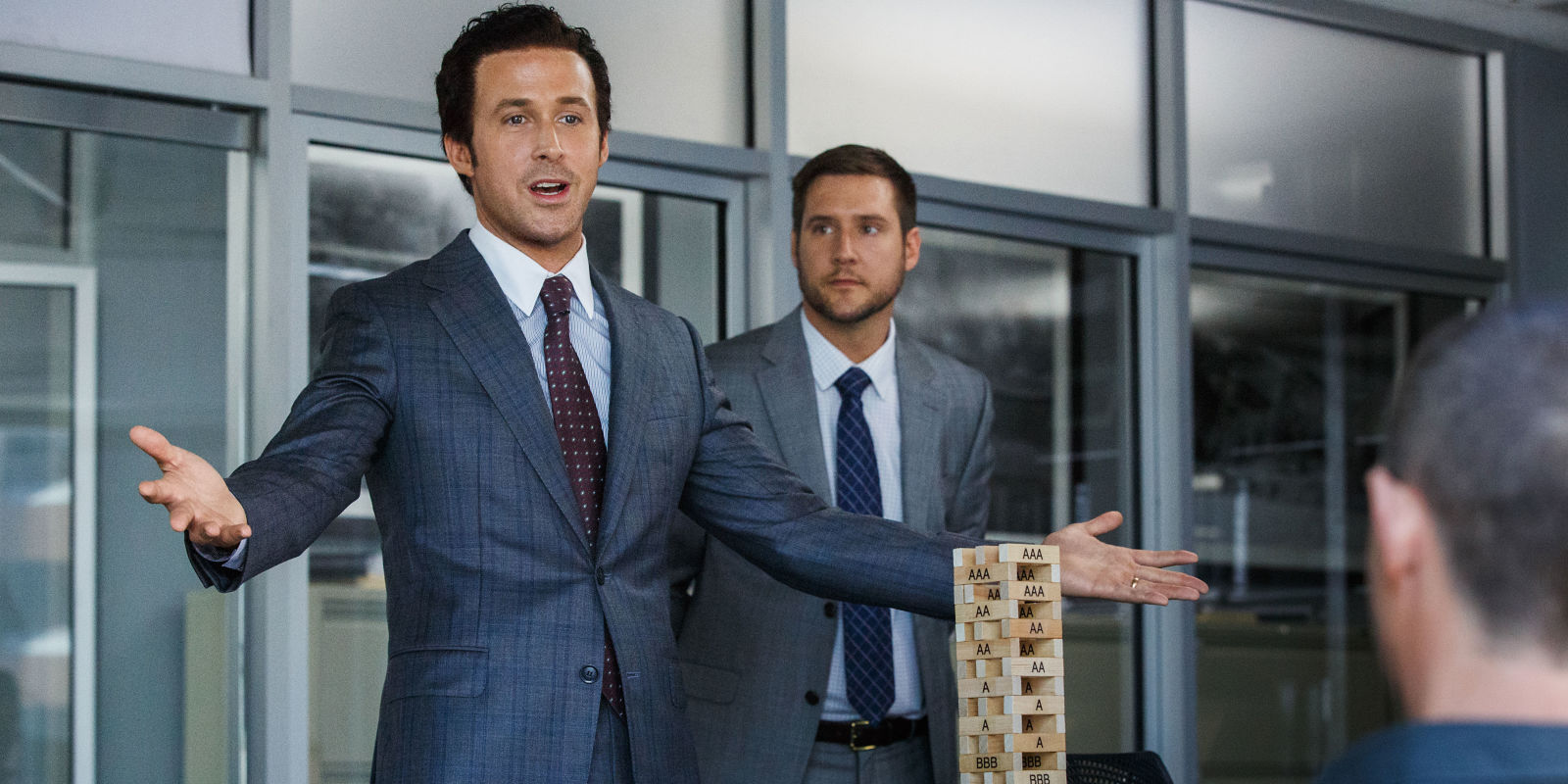Did ‘The Big Short’ Cheat Its Way to Greatness?
With The Big Short, which is up for a handful of Golden Globes this weekend, Adam McKay made an inventive, important film that mixes deep feeling with comedy, while still managing to explain the Great Recession better than most journalism devoted to the topic. It’s even more impressive when you consider that McKay is best known for directing Will Ferrell’s most quotable comedies. But I’m going to stop short of saying that it deserves to win big on Sunday. Mostly, because I’m suddenly suspicious of it.
I’m not wary of the subject matter or how it was handled. I’m not some Wall Street apologist. It’s that I’m trying to decide whether, as a cinematic experience, it cheated. See, one of the ways that The Big Short feels urgent and original is that it breaks the fourth wall. A handful of the cast members — Ryan Gosling’s Jared Vennett, especially — turn to face the camera and directly address the audience, as if they know they are characters in a movie. And like watching a baby taste lemon for the first time, whenever I see a direct address in something it gets me.
It’s a trick that somehow always feels new, even though it’s been around since at least Shakespeare. When something works so consistently, I have to wonder if maybe I’m being unfairly manipulated. Like hearing swelling strings, or watching someone run from an explosion in slow-motion. Yeah, you’ll make me feel something, but that doesn’t mean those feelings are earned.
When you think of the best examples of breaking the fourth wall, you realize it’s a shortcut to sympathy, even if the characters using it are repugnant (and, actually, they usually are). House of Cards wouldn’t be nearly as interesting if Frank Underwood didn’t let us in on his machinations. Ferris Bueller and Zack Morris would just be smarmy, punchable kids that you’d root against in any other story, if they didn’t bring us on board by talking to the camera. Next month, we’ll see if audiences will finally welcome Ryan Reynolds back into our hearts when he stars in Deadpool, based on a hyper-violent anti-heroic comic book character who has always known he’s in a comic book.
Maybe, even though we are familiar with how films work, we constantly and secretly feel as though we’re being ignored by the characters we invest in. Like hecklers at a comedy club, we just want to be a part of the show, too. We’re so desperate to be involved with the action, that all a character has to do is talk to us, and we’ll be on their side.
It’s odd, because the same phenomenon isn’t true of voiceovers. Those work about as often as they don’t — especially when they show up only at the end of a film, or open a film but then disappear partway through. It’s the same with self-referential humour. A little bit can seem clever, but too much (the later seasons of Community, for example) and it becomes vaguely pretentious and smug.
So where does this leave The Big Short? There’s no doubt that the tactic makes the film better. But it also works thematically. So much of the financial crisis was caused because of a lack of oversight and transparency. Having the characters talk to the audience in this case feels like a correction. They are so devoted to being honest, they’ll be upfront about the reality they are creating. It speaks to what happened and what should happen now. (Plus, who doesn’t appreciate Margot Robbie taking the time to look at you from a bubble bath and talk you through some complex economic term?)
I’m not saying that we should write off all instances of breaking the fourth wall, I’m just saying that it’s a trick. And they know it. And the least they could do is be upfront about it. They’re already talking to us anyway.










